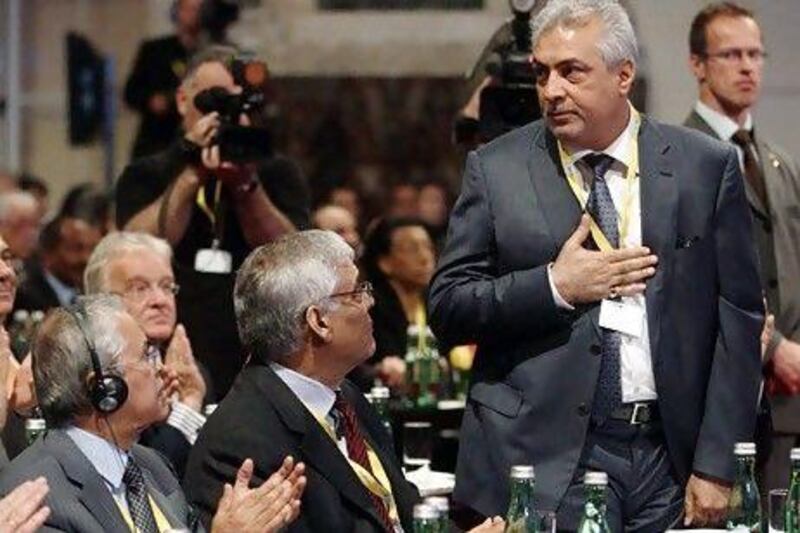VIENNA // One year ago, the most anticipated arrival to the Opec meeting was Libya.
The country was in the grip of civil war - but still managed to send an envoy to the gathering.
This year the spotlight is on Iraq, under Opec's quota system for the first time in 13 years after years of being exempt because of sanctions and war.
If Libya was trying to make a point of demonstrating normality, Iraq is doing the opposite, using extraordinary growth in its oil output to fuel aspirations of becoming a major player in Opec.
"They're coming from a position where they've been put on exemption for a very, very long time," said Samuel Ciszuk, a consultant at KBC Energy Economics. "And now, of course, the situation is changing. It's quite clear they want to send a very strong signal 'we're back at the table.'"
Already this year Iraq has increased its exports by a fifth to pump 2.5 million barrels per day (bpd), enough to help offset the decrease in Iranian supplies caused by sanctions - alongside Saudi Arabia and a recovering Libya.
Iraq's target is to add another 400,000 bpd by next year, all in pursuit of its goal of 10 million bpd in total pumping capacity in 2017- equal to the current production of Saudi Arabia, Opec's top producer.
Although analysts say that goal is not realistic, they do see Iraq overtaking Iran, Opec's second-biggest producer, as soon as next month.
It was only three years ago that Iraq awarded its first service contract to a foreign oil company since the Saddam Hussein era.
To mark its resurgence as an oil producer, Iraq has made it a national priority to run a candidate for the top post within the Opec secreatriat: the veteran oil official Thamer Al Ghadbhan.
Although the secretary general is less a decision-maker than administrator, for Iraq, nominating a candidate for the job is a matter of pride.
"Iraq was a founding member of Opec, so they've been involved from day one," said Bill Farren-Price, the chief executive of Petroleum Policy Intelligence. "It's natural enough they want to put forward a candidate."
Yesterday, at Vienna's baroque Hofburg Palace, Abdul Kareem Al Luaibi, the Iraqi oil minister who currently holds Opec's rotating presidency, opened proceedings ahead of the official start of the Opec conference today. In the evening the Iraqi ministry of oil sponsored a gala dinner at Vienna City Hall. But Iraq still has issues to address at home.
The first is a dispute with Kurdistan, the semi-autonomous state that has signed more than 40 deals with industry players ranging from obscure independents to ExxonMobil, the world's biggest publicly traded oil company.
Investors have flocked to Kurdistan because of its favourable contract terms, which were attractive enough for ExxonMobil to swallow the risk of losing its contracts in southern Iraq because of Baghdad's blacklisting policy.
By contrast, in Baghdad's recent exploration block auction, its harsh contract terms scared off foreign bidders so much they only took three out of 12 blocks.
Iraq will also need to exercise its negotiating skills to get as large a quota as possible within the group's overall pumping target. Opec is expected to put off that discussion for now.
In the days leading up to this today's meeting, Iraq, together with Iran and Venezuela, has called for Gulf nations to stop over-pumping, and Iraq said an oil price of between US$100 and $120 was acceptable. Brent, the European crude benchmark, was trading at $98 a barrel yesterday.
The Iraqi government relies on oil receipts for 95 per cent of its revenue.
"They're very worried about declining price," said Robin Mills, the head of consulting at Manaar Energy in Dubai. "The declining price is in a large part due to their policies."
twitter: Follow and share our breaking business news. Follow us
iPad users can follow our twitterfeed via Flipboard - just search for Ind_Insights on the app.





